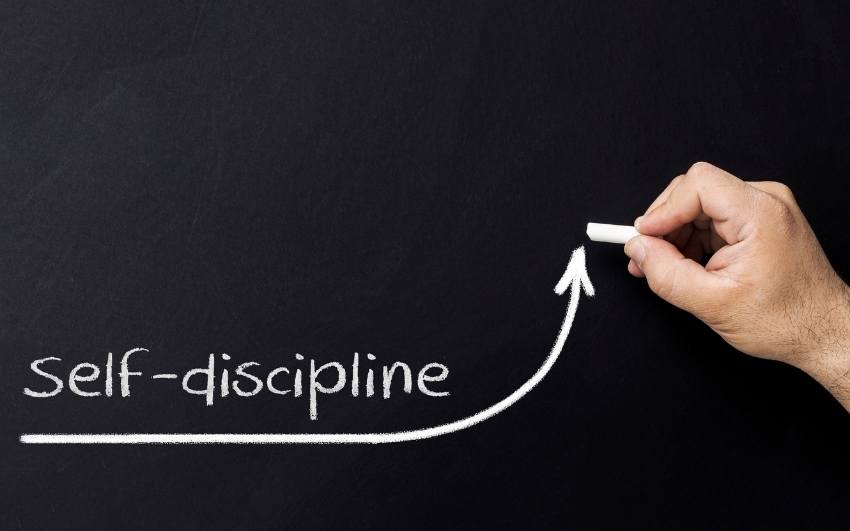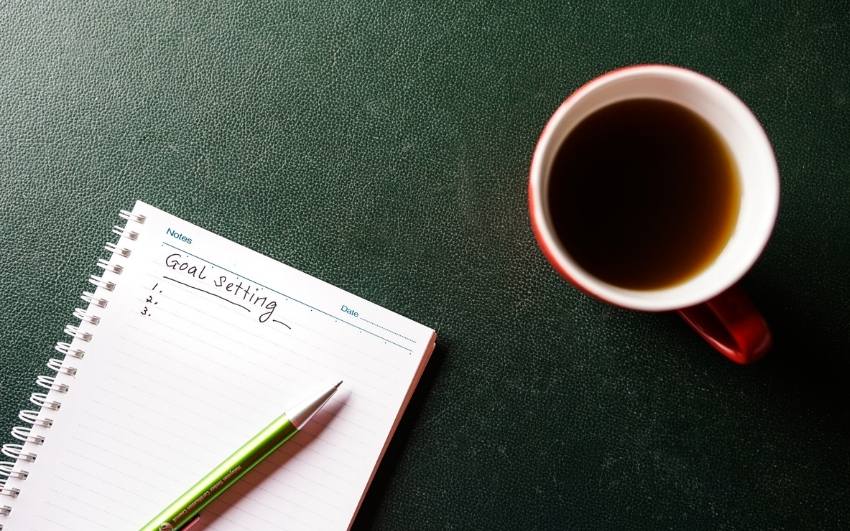On this page

Self Discipline vs Habits: Why you need both to Succeed
Self discipline is one of the best ways to align yourself with your goals.
But being unclear about the actual meaning of self discipline vs habits is the wrong place to get started.
Unfortunately, this happens to many people. It’s common to hear these two words used interchangeably.
- How can I discipline myself to achieve my goals?
- How can I change my habits to achieve my goals?
Most people would provide the same answer to these two questions.
Discipline and habits aren’t synonymous. The same goes for goals vs dreams. The difference between them is slight, but it’s a significant difference. And it’s very important to understand how they work together to keep you on track.
You need to practice Self-discipline until you turn complex tasks into habits. In a sense, we need to use both to become successful.
Here I will outline the significant differences between Discipline and habits.
We will also look at ways to use them to set yourself up for success.
What is Self Discipline?
Self-discipline is the ability to stick to your goals and achieve them. It is the ability to stay focused and not give up.
A person can force themself to perform a difficult task.
Self-discipline requires you to be patient and never give up on your dreams. It is the ability to control your emotions and impulses. Self-discipline is a necessary quality for success in any field.
Principles of Self Discipline

Here are a few principles you must follow if you want to be disciplined:
Discipline starts with you
The most crucial aspect is understanding that it all starts with you. You are in control of your thoughts, emotions, and actions. It is up to you to ensure you do what is necessary to reach your goals. It might be easy to blame other people for your lack of progress, but at the end of the day, it is up to you to make things happen.
Set clear goals
If you want to succeed in anything, you need to have a clear goal. Without a specific goal to strive for, staying motivated and focused on the task at hand will be very difficult. Ensure that your dreams and goals are realistic and not fantasies and that you have a plan for how you will reach them.
Be willing to put in the work
Self-discipline requires hard work and dedication. There is no shortcut to success; if you want to achieve something great, you need to be willing to put in the hours. Don’t be afraid to push yourself. Remember that the more effort you put in, the more likely you will achieve your goals.
Be patient
Self-discipline is not a sprint, and it’s a marathon. Rome wasn’t built in a day, and neither are successful habits. It takes time to develop new behaviors, and you must be patient if you want to see results. Remember that progress is often slow initially, but if you keep at it, you will eventually reach your goal.
Persevere
Sometimes it feels like you’re not making any progress, no matter how hard you try. When this happens, it’s essential to persevere and not give up on your goals. It’s easy to give up when things are tough. But remember that success is often just around the corner if you keep working at it.
Reward yourself
One of the best ways to stay motivated is to reward yourself for your achievements. When you reach a milestone, take some time to celebrate your accomplishment. It can be as simple as taking a break from work or treating yourself to a new book or movie. Whatever it is, make sure it’s something you’ll enjoy and will help you stay on track.
Get support
There’s no need to go it alone when trying to develop self-discipline. If you have trouble staying on track, ask a friend or family member for support. Having someone to help you stay accountable can make all the difference.
Take care of yourself
Being disciplined is impossible if you’re not taking care of yourself. Make sure you get enough sleep, eat healthy meals, and exercise regularly. When you’re taking care of your body, it’s easier to take care of your goals.
Set realistic goals
One of the biggest reasons people give up on their goals is because they’re unrealistic. If your goal is too complicated or time-consuming, you’re more likely to get discouraged and give up. Check that your goals are achievable and you have a plan for achieving them.
Reward yourself
When you reach a goal, reward yourself! This will help you stay disciplined as you continue working towards your goals. Choose something that you want and make sure it’s something that won’t slow down your progress.
Get an accountability partner
A paid accountability partner will help you stay on track with your goals. This can be a friend, family member, or professional coach. Having someone to keep you accountable can make all the difference.
Join a support group
Many support groups are available for people who want to achieve their goals. These groups can provide motivation, resources, and accountability. Find an accountability partner that fits your needs and goals.
Stay Positive
One of the most important things you can do is stay positive throughout the process. Negative thinking will only hold you back. Believe in yourself and your ability to achieve your goals.
The most crucial aspect of Self-discipline is goal setting. Without goals, you don’t need self-discipline.
Goals provide you and your business with direction.
What do you want to achieve?
That is the question you should ask yourself. If you have the answer, you have passed the first step. You have a goal to focus on and must be disciplined to achieve that goal.
How to Set Better Goals?

In the 1990s, Psychologist Dr. Edwin A. Locke and his colleague Dr. Gary Latham developed a theory:
It’s called: “A Theory of Goal Setting and Task Performance.”
The theory states that certain goals have the power to motivate us to take action. In both aspects, conscious and subconscious. But not all goals are the same; some are better motivators than others.
In their research, they discovered and outlined five core principles for goal-setting:
Clarity: Goals should be concise and well-defined.
Challenge: While goals must be attainable, they should also pose a challenge. The theory states that goals are too easy. They have the opposite effect. They can demotivate people.
Commitment: If only one person’s committed to a shared goal in a team, it will be challenging to reach it. A great method to get everyone to commit is to develop your goals together as a team. Ask for their input.
Feedback: Feedback is critical to setting, achieving, and evaluating objectives. Feedback allows you to modify or improve your goal or how you achieve it. Set it and forget about it. This isn’t limited to feedback from others. Take time to think about how you’re doing and check in on yourself to see if the goals you’re making are for yourself.
Task complexity: A goal should be complex enough to warrant the effort but understandable, so everyone is on the same page. If employees can’t comprehend the goal, it’ll only lead to a dip in morale. To create better goals, make sure they can be broken down into small steps and milestones.
You can start by setting better goals for yourself. A good example would be to follow the principles of goal-setting.
What is a Habit?

A habit is a regular and often unconscious pattern of behavior.
Many habits are acquired during childhood, but some may be developed in adulthood. Habits can be positive, such as exercising regularly, or harmful, such as smoking.
A habit is the second step toward Discipline. A person must be able to repeat challenging tasks until they become a habit, even if they are unwilling to. Once the task becomes a habit, the person can achieve their goals.
Repetition and reinforcement are two of the most effective ways to learn new habits.
For example:
- A child who is praised for doing their homework may be more likely to develop a habit of studying.
- But, a child punished for not doing their homework may develop a procrastination habit.
Types of Habits:
There are several different types of habits:
Automatic habits
These are unconscious behaviors that we do without thinking, such as:
- Brushing our teeth
- Tying our shoes
- Cognitive habits
- These are habits of thought, such as:
- Always looking on the bright side
- Dwelling on negative thoughts
Emotional habits
These are habits of feeling, such as:
- Getting angry easily
- Being optimistic
- Physical habits
- These are habits of movement, such as:
- Tapping your foot when you’re nervous
- Fidgeting with your hair
Social habits
These are habits of interaction, such as:
- Smiling at people
- Making eye contact
Habits can be helpful or harmful. Helpful habits make our lives easier. Similarly, harmful habits can make our lives more difficult. Some habits are so ingrained that we don’t even realize we’re doing them.
Many experts believe that it takes 21 days to form a new habit. But, research suggests that it may take more than 66 days for a new behavior to become automatic.
So you must practice self-discipline, and don’t get discouraged if you don’t see results.
Keep practicing self-discipline, and eventually, complex tasks will become second nature.
Tips for developing good habits to achieve your goals
Set realistic and achievable goals
Without setting realistic goals, it will be challenging to develop good habits.
Create a plan of action
Once you have set your goals, creating a plan of action is essential. It will help you develop the necessary habits to achieve them.
Make a commitment
Good habits require commitment and dedication. Make sure you are committed to developing the habits needed to reach your goals.
Be consistent
Consistency is critical when trying to develop good habits. Stick to your plan, be consistent in your efforts, and develop the desired habit.
Reward yourself
When you finally develop the habit, make sure to reward yourself for all your hard work! This will help motivate you to maintain the habit in the future.
Self-Discipline vs Habits

Self-discipline and habits are two terms used interchangeably. They can, on a lot of occasions, be confusing.
In reality, the difference between the two is straightforward.
Self-discipline is doing what you must do, even when you don’t feel like it.
Habits are things that you do regularly without thinking about them.
Self-discipline is the engine that powers good habits. It gets you started and keeps you going even when you don’t feel like it.
Habits are things you’ve been doing for so long that they’ve become second nature.
The key to success is using both self-discipline and habits to your advantage. Together, they can help you achieve any goal.
So how do you use both self-discipline and habits to your advantage?
How to Use both to be Disciplined?
To become Disciplined, you must practice Discipline regularly until it becomes a habit. Once it becomes a habit, it will turn the tide for you in all fields of life.
You must force yourself to do hard things and practice Discipline until it becomes a habit. It may take time, but it will happen eventually, and things will get easier for you. Your goals will not be far from your reach. Things that appeared challenging at first will be a lot easier.
Hardships in the early phases will prepare you to complete a task perfectly.
Maintaining daily self-discipline
You can start by practicing Discipline in your daily activities. You can set up a timeline according to your liking. But you must follow it every day for the best outcome.
If you do not have a specific routine in mind, here are a few examples to get you started:
Morning
Start your day with a set morning routine
This could include making the bed, eating breakfast, working out, or writing a journal. Whatever it is, make sure it’s something that you can stick to every day. Having a morning routine will help set the tone for the rest of your day. It will make it easier to stick to your other self-discipline goals.
Make a list of Things to Do
If you don’t have a list of things to do, it’s easy to get sidetracked and waste time on things that aren’t important. Having a list of things to do will help you stay focused and on track.
Work time
Worktime discipline is essential to maintain if you want to achieve success. It is a must to have a routine and to follow it strictly.
One of the most challenging things about maintaining Discipline is getting started. Once you get into the habit of working regularly, it becomes much easier to stick to your routine.
There are a few things that you can do to make it easier to maintain your Discipline:
- Set realistic goals for yourself and break them down into small, manageable steps.
- Make sure that you have a clear understanding of what you need to do to achieve your goals.
- Create a schedule and stick to it as much as possible.
- Find a role model or mentor who can help you stay on track.
- Reward yourself for making progress towards your goals.
Family time
Self-discipline is essential in family time. It is the key to maintaining a happy and healthy home life. There are many benefits to having self-discipline in family time.
One of the most important benefits is that it helps keep the home peaceful. When everyone follows the same rules and behaves well, it is much easier to avoid conflict. Self-discipline also helps to create a more organized and efficient household. When everyone knows their roles and responsibilities, things tend to go well.
Self-discipline in family time can lead to increased happiness and satisfaction. When everyone is working together towards common goals, all end up happy.
Evening
The best way to develop self-discipline is to start with small changes in your daily routine. You can train yourself to be more disciplined by making simple changes to your ways. One of the most important times to focus on self-discipline is in the evening. That is when you’re winding down for the day and preparing for the next.
Some simple tips for developing self-discipline in your evening routine include:
Make a nightly to-do list.
This can help you track what needs to be done the next day. Make sure that you don’t forget anything important.
Set a bedtime
Having a set bedtime can help you stick to a regular sleep schedule, which is very important for your physical and mental health.
Establish a night-time ritual
This could be something as simple as reading for 20 minutes before bed or taking a relaxing bath. Doing the same thing each night can help signal your body that it’s time to wind down and prepare for sleep.
Avoid screens
The light emitted by electronics can interfere with your body’s natural sleep patterns. If possible, avoid using phones, laptops, or TVs in the hours leading up to bedtime.
Get up and move
Exercise is a great way to improve your sleep quality. But if you can’t fit in a workout during the day, even walking around the block before bed can help you sleep better.
Limit caffeine
Caffeine is a stimulant that can keep you awake and make it harder to fall asleep. If you’re trying to improve your sleep, limit caffeine to the morning hours. Make sure to avoid drinking it close to bedtime.
Stick to a routine
Having a regular sleep schedule can help improve your sleep quality. Going to bed and waking up simultaneously daily will help regulate your body’s natural sleep rhythm.
Conclusion
Self discipline vs habits, what it more important?
Discipline is one of the most important skills you can have in life. It enables you to achieve your goals and dreams, despite setbacks and obstacles.
The good news is that self-discipline can be learned and developed over time. We’ve outlined some steps you can take to start building a foundation of Discipline in your own life.
We hope these tips help you become more disciplined and successful in whatever you choose to do. What strategies will you use to increase your self-discipline?

Petri Maatta is a mindset coach and neuroscience-focused author with 15 years of experience in personal transformation and success psychology. After seven years of business failures, he discovered the power of manifestation through a Fortune 500 mentor. Now, he shares neuroscience-backed strategies through DreamMaker membership, helping others transform their businesses and lives on their own terms.
Read My Story here.
Share This Story, Choose Your Platform!
You want to manifest a new car, but you’re wondering: Does this really work? Here’s
Many smart individuals are often linked with having a high IQ. However, according to emotional
According to online dating statistics over 90% of people believe in love at first sight,




